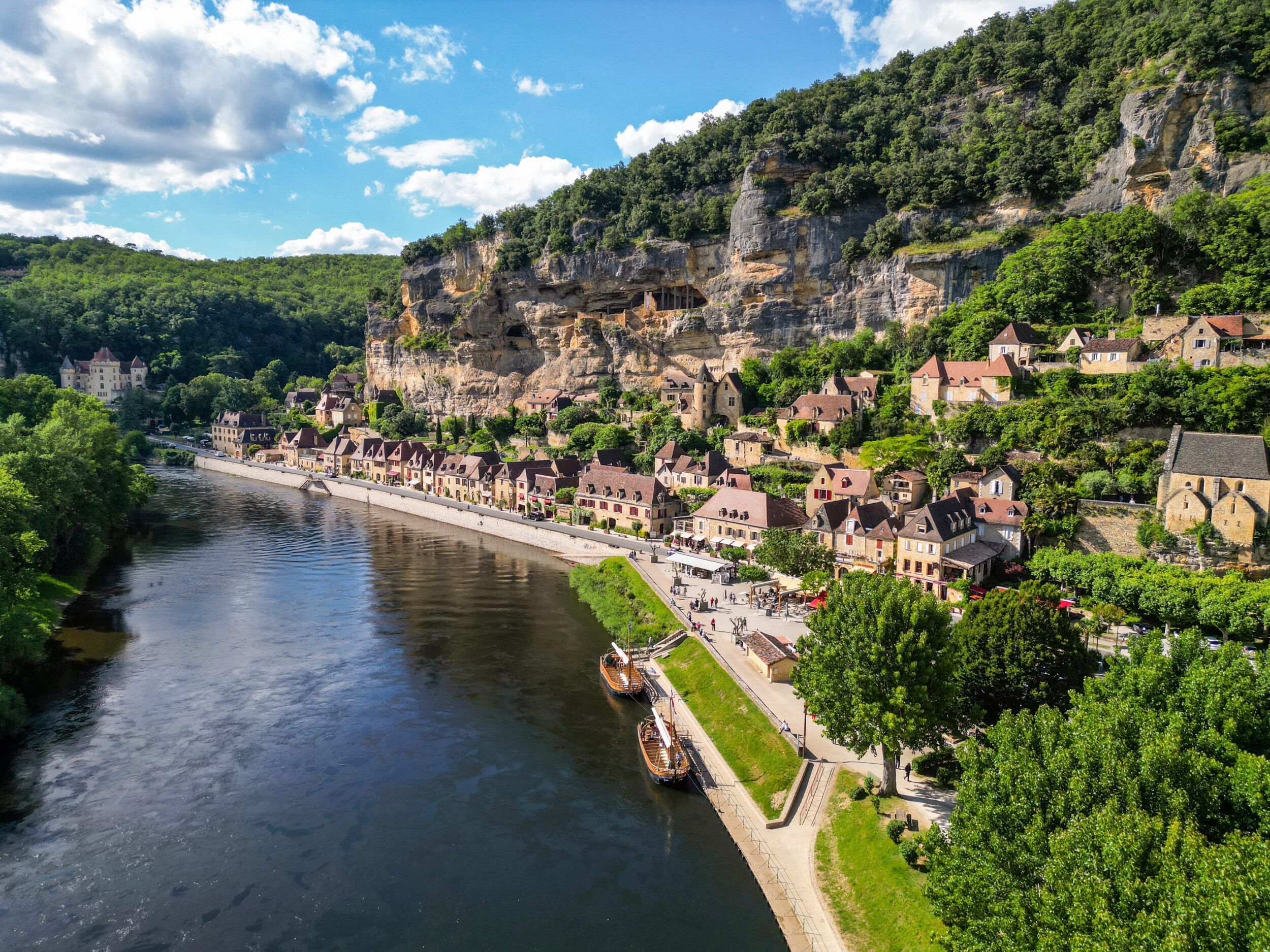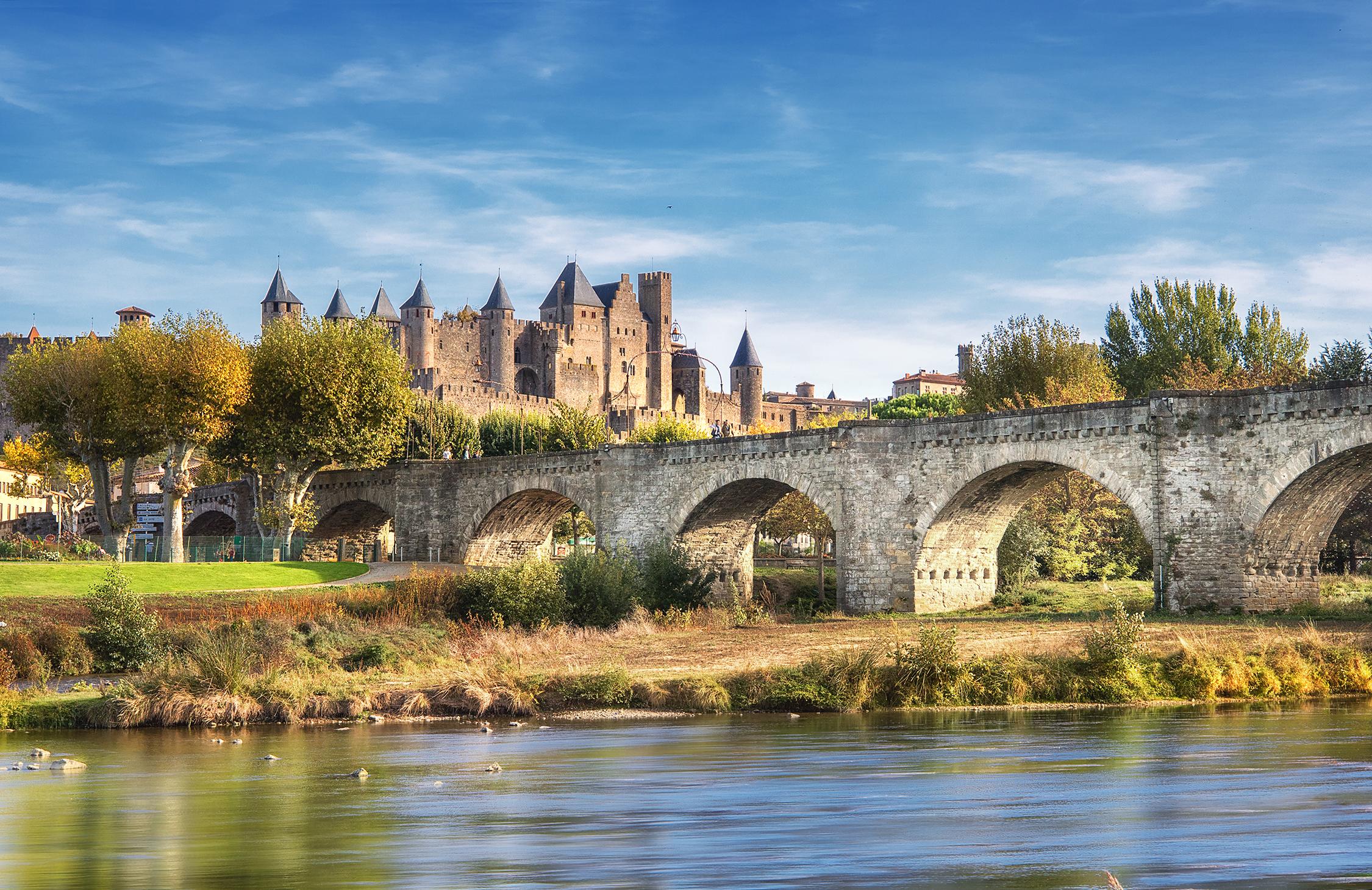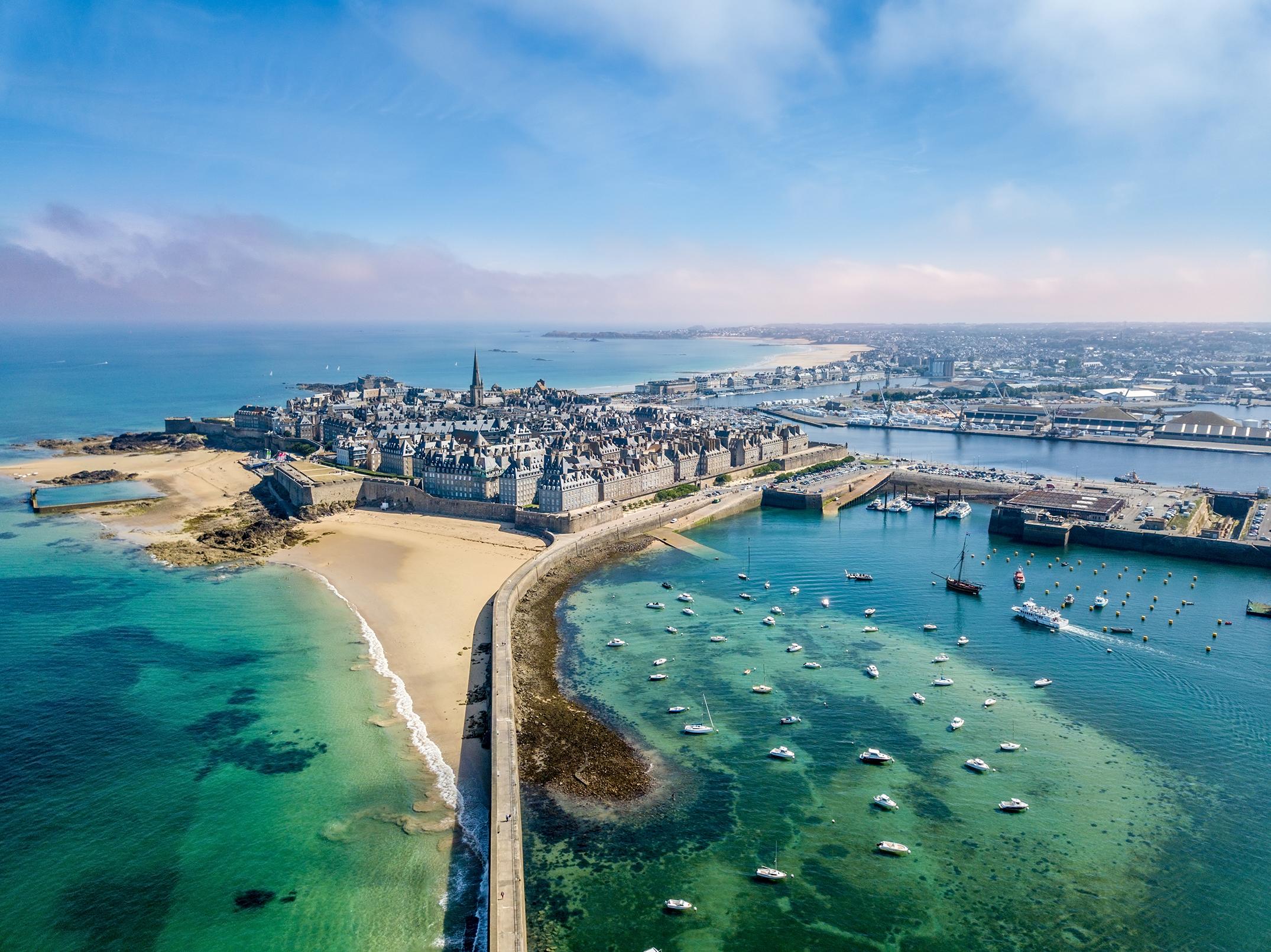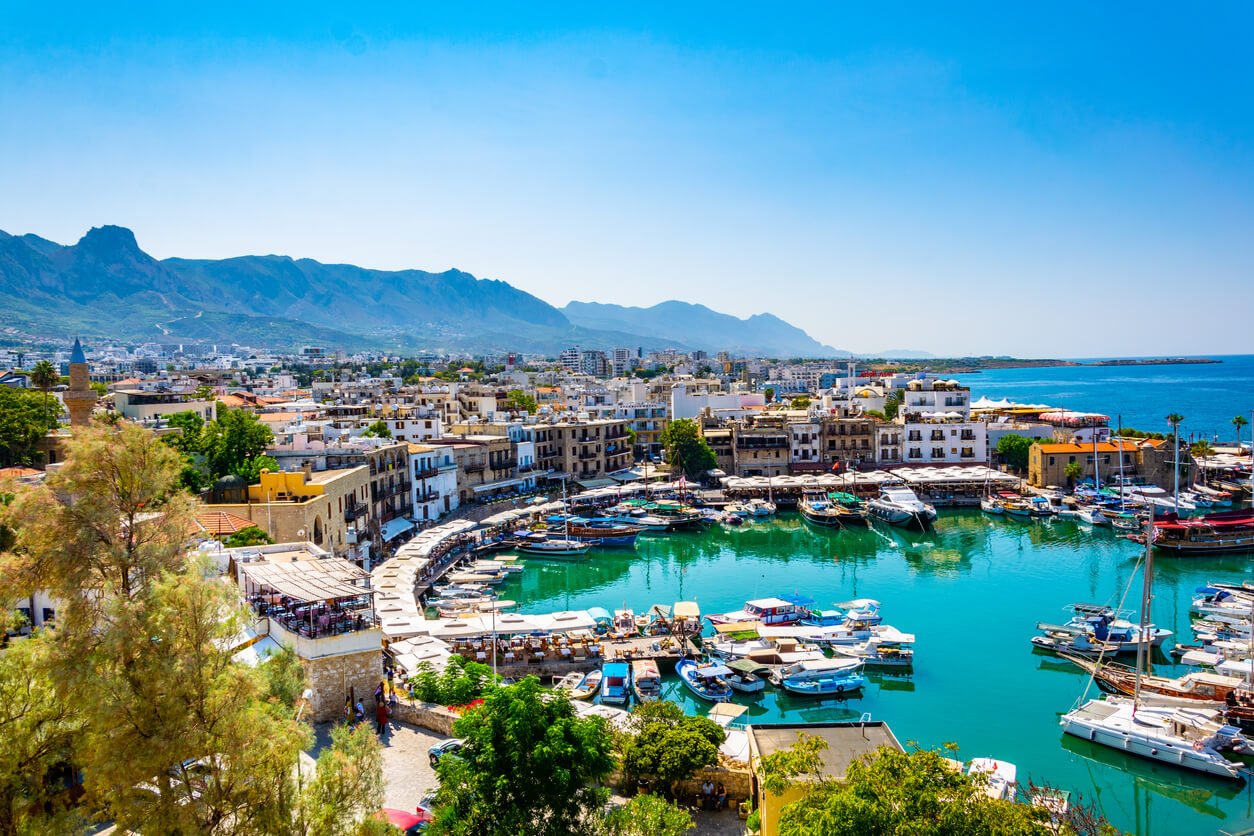
Are you planning your retirement in France? Thousands of people have successfully retired in France and now live an enjoyable lifestyle with a better quality of life.
This article will show you how you can move to France when you retire, whether you want to live in a rural cottage in the countryside, a city apartment or a villa by the sea.
Why should you retire to France?
France is a country rich in culture, gastronomy and wide open spaces. It offers retirees the opportunity to live in a European country that is within easy reach of the UK, gives access to the rest of Europe and has many regional differences.
A healthy climate
Many areas have a much pleasanter climate than the UK, with average temperatures in July reaching 26°C. This table shows the average differences between the United Kingdom’s and France’s climate:
| Average annual value | France | UK |
|---|---|---|
| Sunshine per day | 2.0 | 1.4 |
| Days of rain | 106.8 | 156.0 |
| Maximum daytime temp. | 16.8°C | 12.9°C |
| Water temperature | 15.4°C | 10.1°C |
| Hours of daylight Dec. | 8.7 | 7.4 |
These are average figures, for example, you’ll get much more than 2 hours’ sunshine in the south of France during the spring and summer!
Close to the UK
France is well-connected, with miles of modern motorways, although you will have to pay tolls on many. Travelling from Dover to Calais is the fastest route from the UK by ferry, taking only 1.5 hours, but you can also travel from several other ports along the south coast of England. An even quicker journey is through the Eurotunnel, which takes 35 minutes. If you’re retiring to France with your pets you’ll be pleased to know you can take animals on most ferries and via the Eurotunnel.
Regional differences
France is a diverse country. With snow in the Alps and the Pyrenees, warm sunshine inland and high temperatures in many coastal resorts, France has something to offer everyone. Whether you enjoy walking in the mountains, exploring the fascinating architecture or the history of the different regions, France has plenty to keep you busy.
Cheaper property than the UK
If you’re planning to sell up in the UK and retire in France, you’ll get a lot more property for your money in many areas. The average house price/square metre in France is currently €2.180 whereas in February 2023 in the UK price rose 5.5% in the 12 months to February. This could allow you to buy your dream home, whether you want a cottage in a village, a city apartment or a property by the sea.
The practicalities of retiring to France
When you retire to France from the UK you will have to consider things such as becoming an official resident, healthcare and opening a bank account.
Becoming a French resident
To become a resident you will have to apply for a temporary visa whilst you are still in the UK (from the French Consulate) and a “carte de séjour”, once you arrive in France.
Something to remember if you are a UK resident is that since Brexit you can only spend 90 consecutive days in France if you are not a resident. In the past, many people had a second home in France and moved between the two countries, which is now more difficult. However, rather than discourage people from retiring to France, the affordable property and laid-back lifestyle make becoming a resident an attractive option.
French healthcare
The healthcare system is very good in France with short waiting times for appointments and free medical check-ups every two years. You must have some form of health insurance to retire here. If you have paid into your UK pension you will be entitled to join the Couverture Maladie Universelle system, which entitles you to healthcare in France. However, you will need to pay for certain medications and treatments which you received on prescription in the UK.
How to claim healthcare for UK nationals living in France
As a resident of France and if you have paid into the UK healthcare system you can find out all you need to know about your right to healthcare in France on the UK government website.
Opening a French bank account
Opening a bank account is simple once you are living in the country. You will need to do this to buy a property and pay utility bills. Documents you need to open a French bank account are – a residency permit or temporary visa, passport, and proof of income (which can be your pension statement).
Paying tax in France
If you are a retired resident in France you are considered a tax resident. This means you will have to pay tax in France on any income you receive from anywhere else in the world. It is essential you declare this and any other wealth you may have from property or capital gains.
For example, if you still have a property in the UK and rent it out and are a French tax resident you must declare this to the French authorities. To ensure you are following the right procedures it is advisable to speak to an international tax specialist when planning your retirement.
Receiving your UK pension
If you have paid towards a state and/or private pension in the UK you will be entitled to it when you live in France. It can either be paid into a UK bank account or directly into your French bank account (remember to account for the exchange rate). To claim your pension you must contact the International Pension Centre in the UK.
Something very important to be aware of is that state pensions are taxed in France, but not in the UK. The current figures available are:
- Up to €10,225 0%
- €10,225 – €26,070 11%
- €26,070 – €74,545 30%
- €74,545 – €160,336 41%
- Above €160,336 45%
However, you should check with a financial advisor annually as these are subject to change.

Living in France on a pension
According to a survey by International Living you should be able to live on an average of €1,800-€2,200 per month, which includes rent.
However the actual amount you need to live on each month in France will depend on several factors including:
- whether you rent or own a property
- how often you eat out
- where you live
- other essential outgoings (tax, insurance, vehicle costs etc.)

Things to do when you’re retired in France
Having worked hard all your life, retirement is the time to relax and take life at an easier pace. When you retire in France you can watch the world go by at a pavement café with a delicious coffee and croissant, take up a hobby you’ve always wanted to try (water sports, hiking, French cookery…) and spend your days exploring the rural and city destinations this vast country has to offer.
Just because you’re retired, doesn’t mean you shouldn’t still be active. The pleasant climate means you’ll be able to spend more time outdoors than if you live in the UK..
Gastronomy
France is known for its gastronomy and eating out is cheaper than in the UK, with an average meal being 13.9% cheaper, a cup of coffee 14.2% less and a bottle of wine 13.9% less. This is your chance to enjoy delicious cheeses, mouth-watering pastries and tempting, regional dishes. Shopping at local markets is a great way to practise your French and buy a range of fresh produce cheaper than in the supermarkets.
Improve your French
Sign up for a French class to improve your language skills and make new friends. Not only will this help you in many situations, but it’ll also keep your brain active. You can also go to the cinema and watch films in French (with subtitles) until you understand the language.
Explore other areas of France
Saving money on property and lifestyle means you’ll be able to afford the occasional break. The French road and rail networks are excellent. You can discover the history of the country that’s now home, by visiting the wide range of castles, historic buildings and examples of French architecture.
Another idea is to visit Paris with its iconic Eiffel Tower, the Louvre museum and the Palace of Versailles. A stroll along the river Seine or a river cruise is another essential highlight of any visit to the French capital.
Tour the vineyards of Burgundy, Bordeaux and Champagne, taste your favourite wines and stock up your cellar. Between history and tradition, Moët & Chandon is considered as one of the most famous champagne houses. It has the largest vineyard in the region. But also the largest cellars. Choose between the “Grand Vintage”, “Iconic” or “Instant Impérial” tour (a nod to Napoleon, a great lover of the place).
You can also visit one of France’s many spa towns such as Évian-les-Bains in Haute-Savoie or Vichy in Allier and pamper yourself with a massage and treatment.
Discover the countryside by bicycle – you’ll see much more than in the car. You can also join a local gym, keep fit group, dance club or just take a daily walk in the countryside. Perhaps you’ve always wanted to take up golf and never had the time. Now is the perfect opportunity with there being many golf clubs all over France.
Other activities
Join local ex-pat groups such as British in France or Lions International. Whether mountain biking, dog walking or sharing a glass of wine, there are times when you want to speak to someone in your own language. These groups can offer the support you need if you’re feeling homesick or need advice on how to deal with French bureaucracy (which can sometimes be a nightmare!).
Join a voluntary group to help with local activities. You can do anything from helping clear rubbish around your town to collecting for charity or hospital visiting. This is a good way to integrate with the community, both French and foreign, and great for learning to speak better French.
You’ll never be bored when you’re retired in France – this is your time to do all the things on your bucket list.
With family and friends visiting too, you’re sure to lead an active life and happy life when you retire in France.
If you have any questions or are searching for your dream property, at iad Overseas we’re here to help and make planning your retirement in France as smooth as possible.
- The equivalent price per m2 is less in France than in the UK, meaning you could afford the property of your dreams.
- Despite Brexit, it is still straightforward to retire in France if you follow the visa regulations.
- Living in France offers retirees a healthy, active and outdoor lifestyle.





